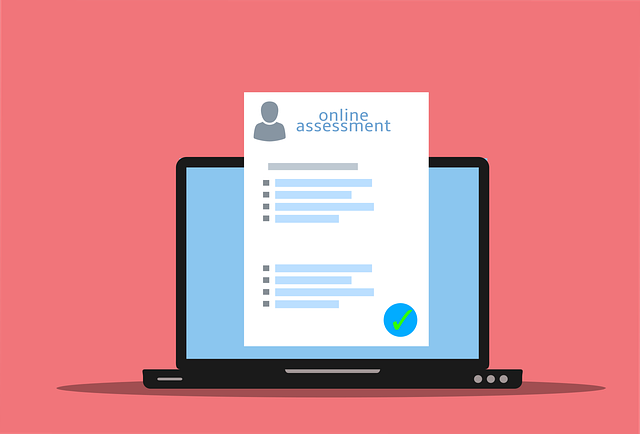Translation services for Informed Consent Forms (ICFs) in the UK are of paramount importance to ensure that participants from diverse linguistic backgrounds fully understand clinical trials' details. These translations must be precise, legally compliant with frameworks like GDPR, and culturally sensitive to maintain ethical standards. Expert translation services with native speakers and ISO 17100 certifications are essential to accurately convey the nuances of informed consent in various languages, thereby safeguarding patient rights and upholding the integrity of clinical trials within the UK's multicultural healthcare system. A case study from a pharmaceutical company demonstrates the effectiveness of these translation services in achieving high participation rates by ensuring that potential volunteers receive clear and comprehensible information, which is critical for ethical research practice and the validity of trial outcomes.
navigating the complexities of informed consent within a multilingual landscape, healthcare providers and researchers in the UK face a critical challenge: ensuring that patients comprehend their rights and the procedures involved. This article delves into the intricacies of compliant consent form translations, a vital aspect of healthcare compliance. We explore the legal framework surrounding informed consent, the indispensable role of translation services in overcoming language barriers, and the meticulous process of translating these forms. Key elements, data protection laws, cultural nuances, and the selection of reliable translation providers are scrutinised to guarantee clarity and legality. With real-world examples and a comprehensive checklist for verification, this piece equips readers with the knowledge to handle informed consent form translations effectively. By highlighting technological advancements and ethical considerations, we aim to shed light on the best path forward in this essential aspect of patient care.
- Understanding the Necessity of Compliant Informed Consent Forms in the UK
- The Role of Translation Services in Healthcare Compliance
- Key Elements of Informed Consent Forms: A Legal Perspective
- Navigating Language Barriers: The Importance of Multilingual Consent Forms
- The Translation Process for Informed Consent Forms: Steps and Best Practices
- Compliance with Data Protection Laws in Multilingual Contexts
- Cultural Considerations in the Translation of Informed Consent Forms
- Identifying Reliable Translation Services for Healthcare Documentation
- The Impact of Non-Compliant Translations on Clinical Trials and Research
- Case Studies: Successful Compliance with Informed Consent Form Translation in the UK
Understanding the Necessity of Compliant Informed Consent Forms in the UK

In the United Kingdom, informed consent forms are a cornerstone of ethical patient care and research compliance. These documents ensure patients are fully aware of the procedures they are undergoing, the potential risks, benefits, and alternative treatments, thus empowering them to make informed decisions about their health. The necessity of compliant informed consent forms cannot be overstated, as they serve a critical legal function: safeguarding both the rights of participants and the integrity of medical research. In an increasingly globalized world where medical tourism is on the rise and clinical trials often have a multinational scope, the translation of these forms into languages that the patients understand becomes paramount. This is where translation services for informed consent forms in the UK play a pivotal role. These specialized services ensure that the nuances of medical terminology are accurately conveyed across different languages, maintaining compliance with regulations such as the General Data Protection Regulation (GDPR) and the Medicines for Human Use (Clinical Trials) Regulations 2004, which set out the legal requirements for clinical trials conducted in the UK. By leveraging professional translation services, healthcare providers and research institutions can bridge language barriers, uphold ethical standards, and foster trust with participants from diverse linguistic backgrounds, thereby enhancing the quality and integrity of medical research and patient care within the UK.
The Role of Translation Services in Healthcare Compliance

In today’s interconnected world, healthcare providers operating in the United Kingdom must navigate a complex web of regulatory requirements, ensuring that patients understand their treatments and associated risks. A pivotal component of this mandate involves the use of informed consent form translations that are both accurate and compliant with legal standards. Translation services for Informed Consent Forms UK play a critical role in this process, serving as a bridge to effectively communicate with non-English speaking patients. These specialized translation services ensure that the nuances and complex medical terminologies are accurately conveyed across different languages, thereby safeguarding patient understanding and adherence to treatment plans. The translators employed by these services undergo rigorous training in both healthcare and linguistic domains, equipping them with the expertise necessary to handle sensitive information with precision and discretion. This is not merely a matter of semantic transfer; it encompasses the cultural nuances and legal implications inherent in medical communication. Consequently, healthcare providers can rely on these translations to be compliant with regulations such as the General Data Protection Regulation (GDPR) and the Human Tissue Act, ensuring that all patients, regardless of their language proficiency, receive the same level of care and understanding. In this context, the role of translation services for Informed Consent Forms UK is indispensable, fostering transparency and trust in healthcare delivery and upholding the ethical standards of patient care.
Key Elements of Informed Consent Forms: A Legal Perspective

Navigating the realm of informed consent in a multilingual context requires meticulous attention to detail and an understanding of legal requirements. Informed consent forms serve as a critical interface between medical professionals and patients, ensuring that individuals receive clear information about procedures, treatments, or research participation. In the UK, these forms must adhere to strict guidelines set forth by regulatory bodies such as the Medicines and Healthcare products Regulatory Agency (MHRA). Translation services for informed consent forms are not just a matter of linguistic accuracy but also of legal compliance. A precise translation ensures that patients fully grasp the implications and risks associated with their participation, which is essential for informed consent to be truly ‘informed.’ It’s imperative that these translations capture the nuances of both medical terminology and legal language, reflecting the source document’s intent accurately. This involves not only a deep understanding of the target language but also knowledge of the cultural context in which the translation will be used. For organizations operating within the UK, engaging professional translation services that specialize in healthcare documentation is crucial to navigate these complexities and maintain compliance with legal standards, thereby safeguarding both the integrity of the consent process and the rights of patients.
Navigating Language Barriers: The Importance of Multilingual Consent Forms

Navigating language barriers in healthcare settings is a critical issue that can significantly impact patient care and outcomes. In the UK, where diversity is a hallmark of its society, ensuring that patients fully understand their Informed Consent Forms (ICFs) is paramount for informed decision-making. Translation services for Informed Consent Forms in the UK are not just a matter of legal compliance; they are an essential tool for fostering trust and clarity between healthcare providers and patients who speak different languages. The absence of accurate translations can lead to misunderstandings, misinformed consent, and potential risks to patient safety. Therefore, it is imperative for healthcare organisations to utilise professional translation services that specialise in medical terminology to provide multilingual consent forms. This ensures that the content of these forms, which outline procedures, risks, and alternatives, is accurately conveyed to all patients, regardless of their native language. By doing so, healthcare providers can uphold ethical standards, comply with legal requirements, and maintain a high level of patient care across diverse communities within the UK.
The Translation Process for Informed Consent Forms: Steps and Best Practices

When navigating the complexities of clinical research, obtaining compliant consent form translations is paramount for both ethical integrity and legal compliance. The translation process for informed consent forms in the UK involves meticulous attention to detail and adherence to regulatory standards. Firstly, it is crucial to select a reputable translation service provider with expertise in medical translations. These providers should be well-versed in the nuances of language and the specific requirements of the Research Governance Framework for Health and Social Care (RGF) and the Medicines for Human Use (Clinical Trials) Regulations 2004, as amended.
The process commences with a thorough review of the original informed consent form to identify all culturally sensitive content and technical terminology. This step is critical to ensure that the translated version conveys the same meaning and maintains the intent of the original document. Next, professional translators with a background in healthcare and familiarity with the target language undertake the translation. They work diligently to translate medical jargon accurately and provide culturally relevant alternatives where necessary. Following translation, the text undergoes a rigorous review by subject matter experts to validate the accuracy of the scientific content. Subsequently, a separate linguistic review ensures that the translated consent form adheres to grammatical norms and idiomatic expressions within the target language community. Finally, the forms are pilot tested with participants who are representative of the target population to confirm clarity and understanding. This iterative process not only safeguards the rights and well-being of research participants but also ensures that informed consent form translations meet both ethical and legal compliance, thereby facilitating the successful conduct of clinical trials in a multilingual society like the UK.
Compliance with Data Protection Laws in Multilingual Contexts

Navigating data protection laws within multilingual contexts presents unique challenges that require meticulous attention to detail and cultural nuances. Organizations operating in diverse linguistic environments must ensure that their Translation Services for Informed Consent Forms UK comply with the stringent standards set forth by regulations such as the General Data Protection Regulation (GDPR) and the UK’s Data Protection Act 2018. Accurate translation is not merely a matter of semantic equivalence but involves understanding the legal implications and privacy considerations inherent in each language. The process demands expertise in both linguistics and data protection law to convey the necessary information without compromising individual rights or the integrity of the data.
In the UK, where multilingualism is prevalent, particularly within health and social care sectors, it is imperative that Informed Consent Forms are accessible and understandable to all individuals, regardless of their linguistic background. This necessitates a comprehensive approach to translation that goes beyond literal word-for-word conversion. Translation services specializing in informed consent forms must ensure that the subtleties of language and the nuances of legal consent are preserved across translations. By leveraging professional translators who are well-versed in both the target language and the specific domain of data protection, organizations can bridge the communication gap, ensuring that informed consent is truly ‘informed’ for all participants, thereby upholding the highest standards of compliance and ethical practice.
Cultural Considerations in the Translation of Informed Consent Forms

When translating informed consent forms, cultural nuances play a pivotal role in ensuring that the content is both accurately conveyed and comprehensible to the target audience. The translation services for Informed Consent Forms UK must be adept at navigating the complexities of language, legal terminology, and cultural sensitivities. Each language carries its own idioms, expressions, and levels of formality that can significantly alter the meaning and implications of the consent if not translated with precision. Moreover, understanding the cultural context is essential to avoid misinterpretation or confusion, which could lead to unintended consequences. In the UK, where a diverse population resides, translation services must be particularly vigilant to ensure that informed consent forms are tailored to reflect the linguistic and cultural realities of each group. This requires not only a deep grasp of grammar and syntax but also an appreciation for the subtleties of cultural interactions. By leveraging expert translation services for Informed Consent Forms UK, organisations can bridge communication gaps, uphold ethical standards, and maintain compliance with legal requirements, thereby protecting the rights and dignity of all participants involved in research studies.
Identifying Reliable Translation Services for Healthcare Documentation

When it comes to healthcare documentation, accuracy and compliance are paramount, especially when translating Informed Consent Forms (ICFs) for patients in the UK. Navigating the nuances of language and regulatory requirements is a complex task that demands expert attention. Reliable translation services for Informed Consent Forms UK must possess a deep understanding of both the source and target languages, as well as the medical context. These services should be equipped with professional translators who are not only native speakers but also have expertise in healthcare terminology. This ensures that all consent forms are translated accurately, maintaining the integrity of the original content while complying with legal standards such as the EU’s General Data Protection Regulation (GDPR). Furthermore, these translation services should offer a certification feature for the translations, providing assurance that the documents meet both linguistic and regulatory compliance. It is crucial to select a service provider that holds certifications like ISO 17100, indicating their commitment to high-quality translation services tailored for healthcare documentation. This level of professionalism not only safeguards patient rights but also upholds the reputation of medical institutions and practitioners within the UK and beyond. By choosing a reputable service, healthcare providers can confidently bridge language barriers, ensuring informed consent is truly informed.
The Impact of Non-Compliant Translations on Clinical Trials and Research

When clinical trials and research involve participants from diverse linguistic backgrounds within the UK, translation services for Informed Consent Forms (ICFs) become paramount to ensure ethical conduct and legal compliance. Non-compliant translations can have significant repercussions on the integrity of clinical trials. They may lead to misunderstandings about the trial’s purpose, procedures, risks, and benefits, potentially compromising informed consent, which is foundational for ethical research practice. Translations that do not accurately convey the content of ICFs may result in participants giving consent without fully understanding what they are agreeing to, thus increasing the risk of both legal complications and ethical breaches. This not only undermines the trust between researchers and participants but also jeopardises the validity of the trial outcomes. Conversely, translation services that adhere to stringent standards for accuracy and cultural appropriateness ensure that participants can make informed decisions, thereby upholding ethical research principles and safeguarding the legitimacy of clinical trial results. In the UK, where the population is increasingly multilingual, the use of professional translation services for ICFs is a critical component in the conduct of clinical trials, essential to navigate the complexities of cross-cultural communication and legal requirements.
Case Studies: Successful Compliance with Informed Consent Form Translation in the UK

Navigating the complexities of informed consent in a multicultural society is a critical aspect of ethical research and healthcare practices in the UK. Translation services for Informed Consent Forms have become increasingly vital to ensure participants from diverse linguistic backgrounds fully understand the nature, purpose, potential risks, and benefits of their participation. A case study that exemplifies successful compliance in this domain involves a leading pharmaceutical company conducting clinical trials across multiple regions in the UK with a significant proportion of non-English speaking participants. To address this challenge, the company engaged specialized translation services to accurately translate informed consent forms into a multitude of languages while maintaining the original content’s integrity and legal compliance. This approach not only facilitated clear communication but also demonstrated the company’s commitment to ethical standards and inclusivity. The translations were reviewed by both legal experts and medical professionals to ensure that all nuances of the informed consent process were effectively conveyed, leading to a study participation rate that was both high and reflective of the local community demographics. This case underscores the importance of employing reputable translation services for Informed Consent Forms UK-wide, ensuring that every participant can give consent that is both informed and voluntary, regardless of their language proficiency. It also highlights the necessity for such translations to be legally compliant, thereby avoiding potential legal pitfalls and ensuring the integrity of the research outcomes.
In conclusion, navigating the complexities of informed consent within multilingual communities necessitates a robust framework that ensures both legal compliance and cultural sensitivity. Translation services for Informed Consent Forms in the UK play a pivotal role in this process, bridging language barriers to uphold ethical standards and protect patient rights. By adhering to best practices and leveraging expertise in legal language and cultural nuances, healthcare providers can mitigate the risks associated with non-compliant translations. The case studies highlighted demonstrate the successful implementation of these translations, reinforcing their critical role in clinical trials and research. As such, it is imperative for healthcare organisations to identify and collaborate with translation services that specialise in this domain, ensuring that all participants, regardless of language proficiency, receive clear and compliant consent forms. This commitment not only enhances patient safety but also fosters trust in the healthcare system, ultimately contributing to the integrity of medical research conducted within the UK.



